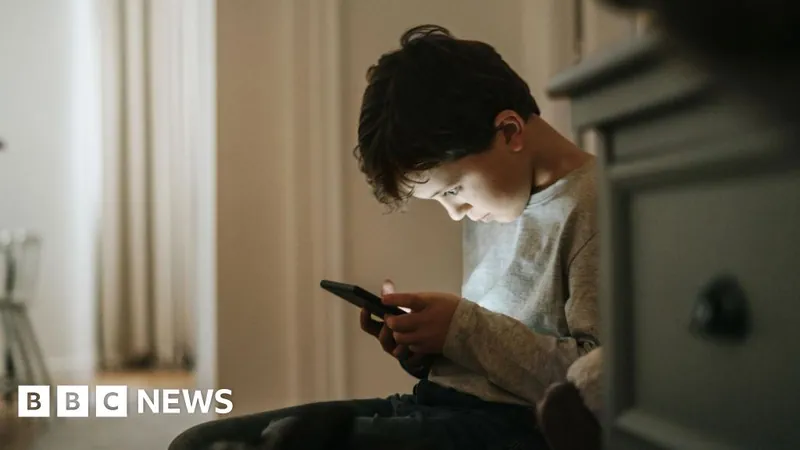
Discord's Face Scanning Age Checks: A Game Changer for Online Safety?
2025-04-17
Author: Ming
A Controversial New Age Verification Method
Discord is diving into uncharted waters by testing facial recognition technology to verify the ages of its users in the UK and Australia. This social platform, boasting over 200 million monthly users, was originally favored by gamers but has evolved into a melting pot of communities discussing everything from movies to adult content.
New Regulations Prompt Action
With the UK's impending online safety laws requiring adult content platforms to implement "robust" age verification by July, Discord's face scanning initiative is more than just an experiment—it's a response to regulatory pressures. Matt Navarra, a social media expert, emphasizes that this is just the beginning of a significant shift in how age verification is approached online.
The Dawn of a New Era in Online Verification
"Age assurance is becoming the new seatbelt for the internet," Navarra pointed out in a recent interview. As online safety laws tighten, platforms may need to overhaul their current self-verification systems, shifting away from simplistic mechanisms like the age-old 'click here to confirm you're 13.' The consequences for getting it wrong could be severe: firms face fines of up to 10% of their global turnover.
Precedent Set by Other Platforms
Discord isn't the trailblazer here; Instagram introduced similar age checks in 2022. Users must submit a selfie video that AI analyzes to approximate age or upload a photo ID. Like Discord, Instagram claims this verification process is a one-time check triggered by sensitive content or settings adjustments.
Privacy Concerns and User Trust
Though Discord assures users that their face scans will remain on their device without being stored or collected, privacy advocates argue that such measures could raise serious concerns. Campaigners assert that these technology-driven checks are flawed and could expose users to potential privacy infringements.
What Lies Ahead?
With the landscape of online interactions evolving rapidly, it appears age verification via facial recognition could soon become standard practice in the UK and perhaps beyond. The question remains: will users embrace it, or resist turning their faces into IDs for internet access?



 Brasil (PT)
Brasil (PT)
 Canada (EN)
Canada (EN)
 Chile (ES)
Chile (ES)
 Česko (CS)
Česko (CS)
 대한민국 (KO)
대한민국 (KO)
 España (ES)
España (ES)
 France (FR)
France (FR)
 Hong Kong (EN)
Hong Kong (EN)
 Italia (IT)
Italia (IT)
 日本 (JA)
日本 (JA)
 Magyarország (HU)
Magyarország (HU)
 Norge (NO)
Norge (NO)
 Polska (PL)
Polska (PL)
 Schweiz (DE)
Schweiz (DE)
 Singapore (EN)
Singapore (EN)
 Sverige (SV)
Sverige (SV)
 Suomi (FI)
Suomi (FI)
 Türkiye (TR)
Türkiye (TR)
 الإمارات العربية المتحدة (AR)
الإمارات العربية المتحدة (AR)